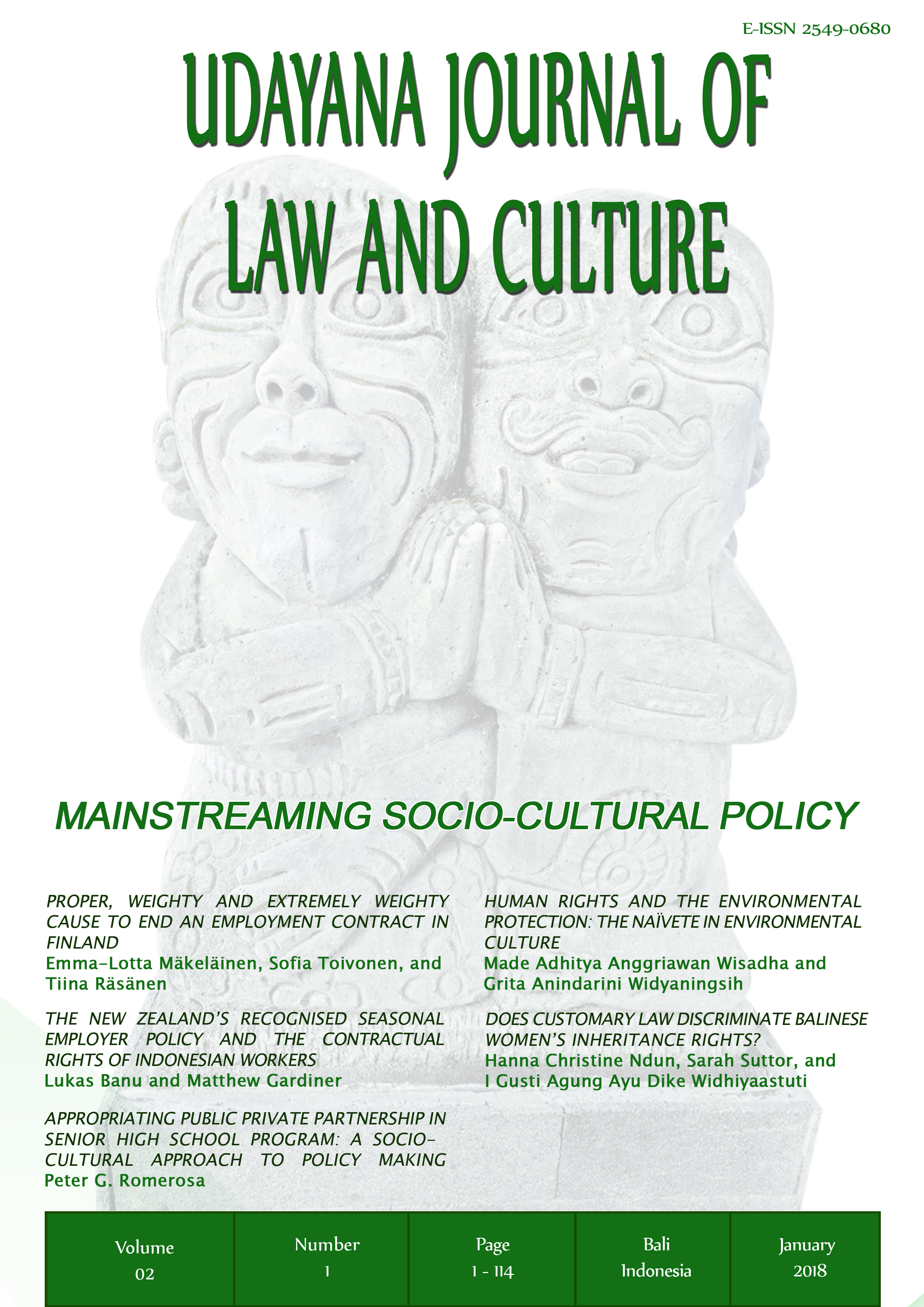Appropriating Public Private Partnership in Senior High School Program: A Socio-Cultural Approach to Policy Making
Abstract
The implementation of the Senior High School program in the Philippines illuminates the State’s response to the changing landscape of the global market economy. Its salient features focus on the additional two year-senior high school program which highlights the development of middle level skills for national development and global competitiveness. In order to concretize the implementation of the program, the State entered into collaboration with the private schools which is commonly known as Public Private Partnership (PPP). In this collaboration, the government provides the guidelines and financing while the private educational institutions provide the academic service. Framed from a socio-cultural approach to policy making in education, this study aimed to unpack a particular implementation of PPP of a private institution in an urban area, examine the institutional policies that were created in response to PPP, and interrogate the impacts of these policies on micro social processes. Using interviews and focus group discussions for methodology, the researcher drew narratives and insights from on-the-ground actors. Further, the investigation looked into how authorized policy actors (school administrators) and nonauthorized policy actors (teachers, parents, and students) are appropriating policies within the operational framework of the PPP in the implementation of the senior high school program. The results demonstrated that multi- layered appropriation and exercise of the agency were explicitly and implicitly deployed in diverse social spaces by actors as a pragmatic and creative response to the new educational arrangement. The paper provides a lens to further develop under-standing on how policy appropriation and production from the local context can inform institutional approaches in facilitating relevant student experience within the realm of PPP in education.
Downloads
References
Althusser, Louis. On the Reproduction of capitalism: Ideology and Ideological State Apparatuses. Translated by G.M. Goshgarian. London: Verso Books, 2014.
Reed-Danahay, Deborah. Education and Identity in Rural France. The Politics of Schooling. Great Britain: Cambridge University Press, 1996.
Delmon, Jeffrey. Public Private Partnership Projects in infrastructure: An Essential Guide to Policy Makers. Cambridge University Press, 2011.
Organisation for Economic Co-operation and Development. Public-Private Partnerships: In Pursuit of Risk Sharing and Value for Money. Paris: OECD Publishing: 2008.
Robertson, S. L et, al. Public Private Partnership in Education. Edward Elgar Publishing Limited, UK, 2012.
Sutton, Margaret, and Bradley A. Levinson, eds. Policy as Practice: Toward a Comparative Sociocultural Analysis of Educational Policy. Vol. 1. London: Ablex Publishing, 2001.
Shore, C. & Wright, S (eds). Anthropology of Policy: Critical Perspective on Governance and Power. London and New York: Routledge, 2005.
Turner, Victor. The Ritual Process: Structure and Anti-Structure. Chicago: Aldine, 1969.
JOURNAL ARTICLE
Ball, Stephen J. “Performativity, Commodification and Commitment: An I-spy Guide to the Neoliberal University.” British Journal of Educational Studies 60, no. 1 (2012): 17-28. https://doi.org/10.1080/00071005.2011.650940
Ball, Stephen J. “What is Policy? Texts, Trajectories and Toolboxes”. Discourse: Studies in the Cultural Politics of Education 13, no. 2 (1993): 10-17. http:// dx.doi.org/10.1080/0159630930130203
Emirbayer, Mustafa, and Ann Mische. “What is Agency?.” American Journal of Sociology 103, no. 4 (1998): 962-1023.
Levinson, Bradley AU, Margaret Sutton, and Teresa Winstead. “Education Policy as a Practice of Power: Theoretical Tools, Ethnographic Methods, Democratic Options.” Educational Policy 23, no. 6 (2009): 767-795. https:// doi.org/10.1177/0895904808320676
Macris, Vicki. “The Ideological Conditions of Social Reproduction.” Journal for Critical Education Policy Studies 9, no. 1 (2011): 20-46.
Priestley, Mark, Richard Edwards, Andrea Priestley, and Kate Miller. “Teacher Agency in Curriculum Making: Agents of Change and Spaces for Manoeuvre.” Curriculum Inquiry 42, no. 2 (2012): 191-214. https://doi.org/10.1111/ j.1467-873X.2012.00588.x
LEGAL DOCUMENT
The 1987 Constitution of the Republic of the Philippines
Republic Act No. 10533 An Act Enhancing the Philippine Basic Education System by Strengthening its Curriculum and Increasing the Number of Years for Basic Education, Appropriating Funds Therefor and for Other Purposes
An Act Instituting a Framework of Governance for Basic Education, Establishing Authority and Accountability, Renaming the Department of Education, Culture and Sports as the Department of Education, and for Other Purposes (Governance of Basic Education Act of 2001)
Department Education Order No. 88 s. 2010 Revised Manual of Regulations for Private Schools in Basic Education
Universal Declaration on Human Rights
Convention on the Rights of the child
WEBSITE CONTENT
Cook & Crang (1995). Doing ethnographies. Durheim University. http://dro.dur. ac.uk/202/1/202.pdf?DDD14+dgg0arb+dgg0mac+dul0jk
K–12 Program. http://www.gov.ph/k-12/#about.
Organisation for Economic Co-operation and Development (2012) Recommendation of the Council on Principles for Public Governance of Public-Private Partnerships. Retrieved on November 20, 2017 from: https://www.oecd.org/governance/ budgeting/PPP-Recommendation.pdf
Legal and Policy Basis of PPP in Education in the Philipines.https://www.teach-erph.com/legal-bases-of-philippine-educational-system/
Voucher Program. http://www.deped.gov.ph/k-to-12/faq/voucher-program
United Nations. Universal Declaration of Human Rights, 1948 Adopted by the United Nations General Assembly on 10 December 1948 at the Palais de Chaillot in Paris, France. http://www.un.org/en/universal-declara-tion-human- rights/
United Nations, Treaty Collection, https://treaties.un.org/Pages/ViewDetails. aspx?src=IND&mtdsg_no=IV-11&chapter=4&lang=en#11
Office of the High Commissioner for Human Rights, Regional Office for South-East Asia, http://bangkok.ohchr.org/news/crc.aspx








